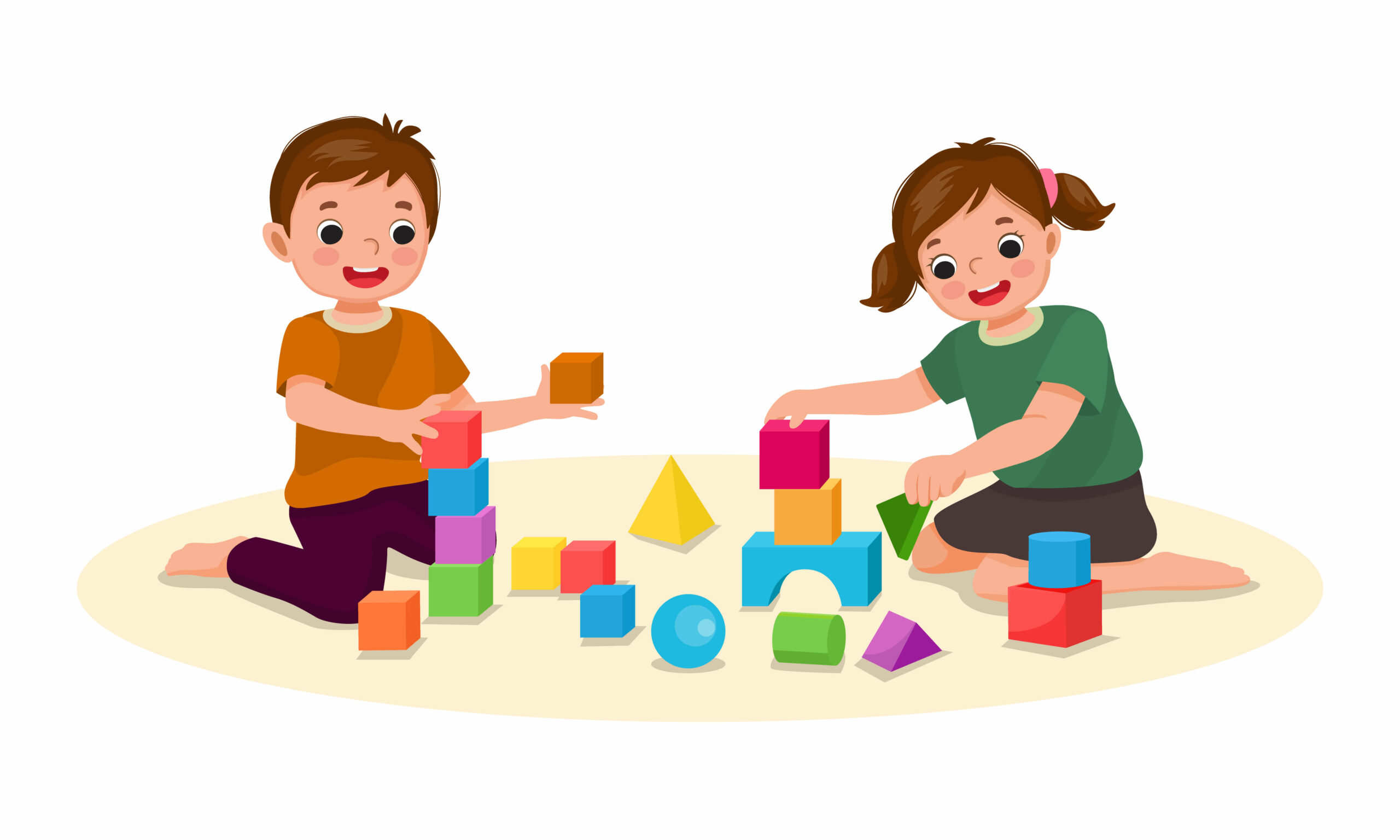A child’s path towards social and emotional development begins in kindergarten, a crucial time in their growth. A time when children meet new friends, learn to handle their emotions and grow socially. We will explore the significance of nurturing social behaviours and emotional development in kindergarten and provide practical advice for parents and teachers seeking to support children in these areas. By creating a nurturing and inclusive atmosphere, fostering emotional intelligence, facilitating social skills through play, and promoting collaboration, we can empower children to establish meaningful social connections and build emotional strength that will serve them well in the future.
Also Read: When to Start Kindergarten: Advantages and disadvantages of starting kindergarten late
Tips for Social and Emotional Development in Children
Creating a Supportive Classroom Environment – In kindergarten, creating a supportive and nurturing classroom environment is crucial for fostering social and emotional development. A welcoming and inclusive atmosphere sets the stage for children to feel safe, valued, and respected. Teachers can establish clear expectations and consistent routines to provide a sense of structure and security. By promoting positive behaviour and acknowledging individual strengths, children develop a sense of belonging and build their self-esteem. Additionally, incorporating cooperative learning activities and group projects encourages collaboration and teamwork, fostering social skills and relationship-building.
Teaching Emotional Literacy – Emotional literacy is a fundamental skill that helps children understand and manage their emotions effectively. To help kids recognize, express, and control their emotions, kindergarten teachers are crucial. Through storytelling, discussions, and interactive activities, teachers can introduce different emotions and help children recognize them in themselves and others. Providing a vocabulary to describe emotions enables children to communicate their feelings more effectively and seek support when needed. As a way of encouraging creative expression and emotional inquiry, teachers can also encourage kids to express their feelings through art, painting, or sketching.
Building social skills through Play – Play is a natural and powerful medium for children to develop social skills in kindergarten. Engaging in structured play activities allows children to practise important social interactions, such as taking turns, sharing, and cooperating. Teachers can incorporate games and group projects that require collaboration and problem-solving, encouraging children to communicate, negotiate, and work together towards a common goal. Role-playing scenarios also provide opportunities for children to understand different perspectives and develop empathy. By fostering a playful and inclusive environment, children learn valuable social skills that lay the foundation for positive relationships and future success.
Encouraging Emotional Regulation – Children need emotional regulation to control and deal with their emotions in a healthy and acceptable way. When dealing with difficult situations, kindergarten instructors may teach kids a variety of coping mechanisms. To encourage emotional well-being, daily routines might include deep breathing exercises, mindfulness activities, and guided relaxation techniques. Creating a designated “calm-down corner” in the classroom provides a safe space for children to retreat and engage in calming activities, such as reading or sensory play. By teaching children to recognize their emotions, providing tools for self-regulation, and modelling healthy emotional responses, teachers empower children to navigate their emotional landscape with confidence and resilience.
Fostering Empathy and Respect – Empathy and respect are essential values that contribute to positive social interactions and a harmonious classroom environment. Kindergarten educators can incorporate activities and discussions that promote empathy and help children understand and appreciate diverse perspectives. Reading books that highlight different cultures and experiences, engaging in conversations about feelings and emotions, and participating in acts of kindness and community service cultivate empathy and compassion. Teachers can encourage children to actively listen to their peers, validate their feelings, and consider alternative viewpoints.
Collaboration with Parents and Caregivers – Supporting children’s social and emotional development requires collaboration between instructors and parents. Regular communication channels, such as parent-teacher conferences, newsletters, or digital platforms, facilitate ongoing dialogue and the sharing of observations and strategies. Sharing strategies for promoting emotional literacy, encouraging empathy, and fostering positive relationships strengthens the partnership between home and school. Talking honestly with children about their feelings, emotions, and social interactions is important for parents. By creating a supportive home environment that values emotional expression and emphasises empathy, parents contribute significantly to their child’s social and emotional growth.
Celebrating Diversity and Inclusion – Incorporate activities that celebrate diversity and promote inclusivity in the classroom. Display multicultural artwork, flags, and symbols to create a visual representation of diversity. Read books that showcase characters from various backgrounds and encourage discussions about different cultures and traditions. Organise cultural celebrations or invite guest speakers to share their experiences. By embracing diversity, children learn to appreciate and respect different perspectives, fostering a sense of unity and inclusivity among them.
Encouraging Positive Relationships – Give children chances to be friends with their classmates and build positive relationships. Encourage teamwork and collaboration through group projects and cooperative learning activities. Teach children effective communication skills, such as active listening and expressing thoughts and feelings respectfully. Promote acts of kindness and emphasise the importance of empathy and understanding. By fostering a supportive and caring classroom environment, children learn to build friendships, resolve conflicts peacefully, and develop healthy social connections.
Assessing and Monitoring Progress – Regularly assess and monitor children’s social and emotional development to track their progress. We observe how children interact and use checklists and informal assessments to understand their social skills, emotional control, and problem-solving abilities. Identify areas where additional support may be needed and provide targeted interventions to address specific needs. Collaborate with parents and caregivers to gather insights from home and ensure a holistic approach to assessment. By monitoring progress, educators can make informed decisions and tailor their instructional strategies to support each child’s social and emotional growth effectively.
Cultivating Inner Strength and Adaptation Skills – Teach children the importance of cultivating inner strength and adaptation skills to navigate challenges and setbacks. Develop their sense of inner resilience and capacity for adapting to shifting conditions. Teach them practical stress-reduction methods like mindfulness, introspection, and positive affirmations. By nurturing their inner strength and cultivating adaptation skills, we empower children to face adversity with confidence and the ability to adjust and thrive in different situations.
Also Read: Picture Reading for Kindergarten
Conclusion
Nurturing social and emotional development in kindergarten is vital for children’s overall well-being and future success. By creating a supportive and inclusive classroom environment, teaching emotional literacy, promoting social skills through play, encouraging emotional regulation, fostering empathy and respect, celebrating diversity and inclusion, encouraging positive relationships, and assessing progress, educators lay a solid foundation for children’s social and emotional growth. These efforts empower children to develop strong interpersonal skills, navigate their emotions effectively, and thrive in their relationships and interactions.
Euroschool is committed to nurturing social and emotional development in our kindergarten programme. We know how important it is to make our classrooms welcoming and inclusive, so children feel like they belong and can work together with respect and cooperation. We prioritise social emotional awareness, literacy, helping children understand and express their emotions effectively. By integrating storytelling, discussions, and interactive activities, we provide children with the tools to identify and manage their feelings. Our dedicated teachers guide them in developing emotional vocabulary and teach strategies for emotional regulation. Through these approaches, Euroschool cultivates a strong foundation for social and emotional growth, empowering our kindergarten students to navigate their world with confidence and resilience.










